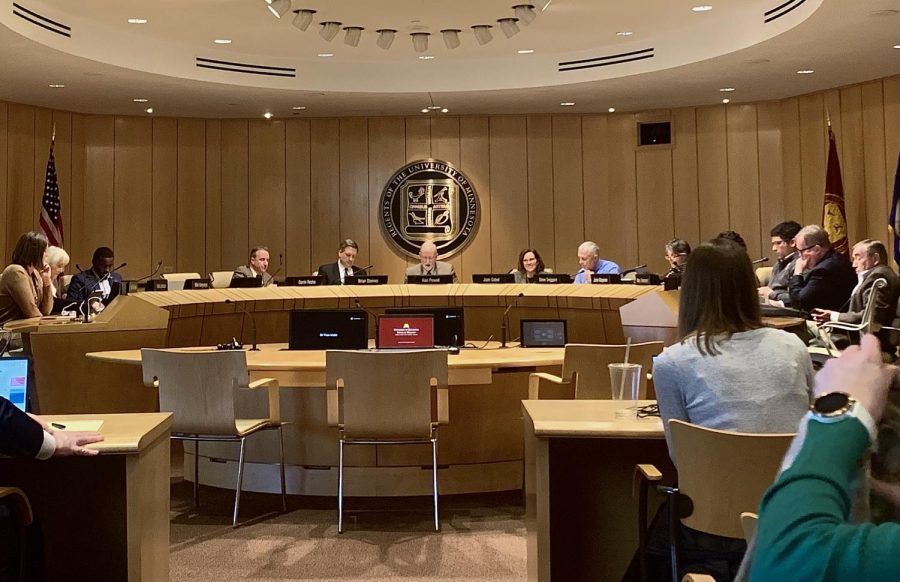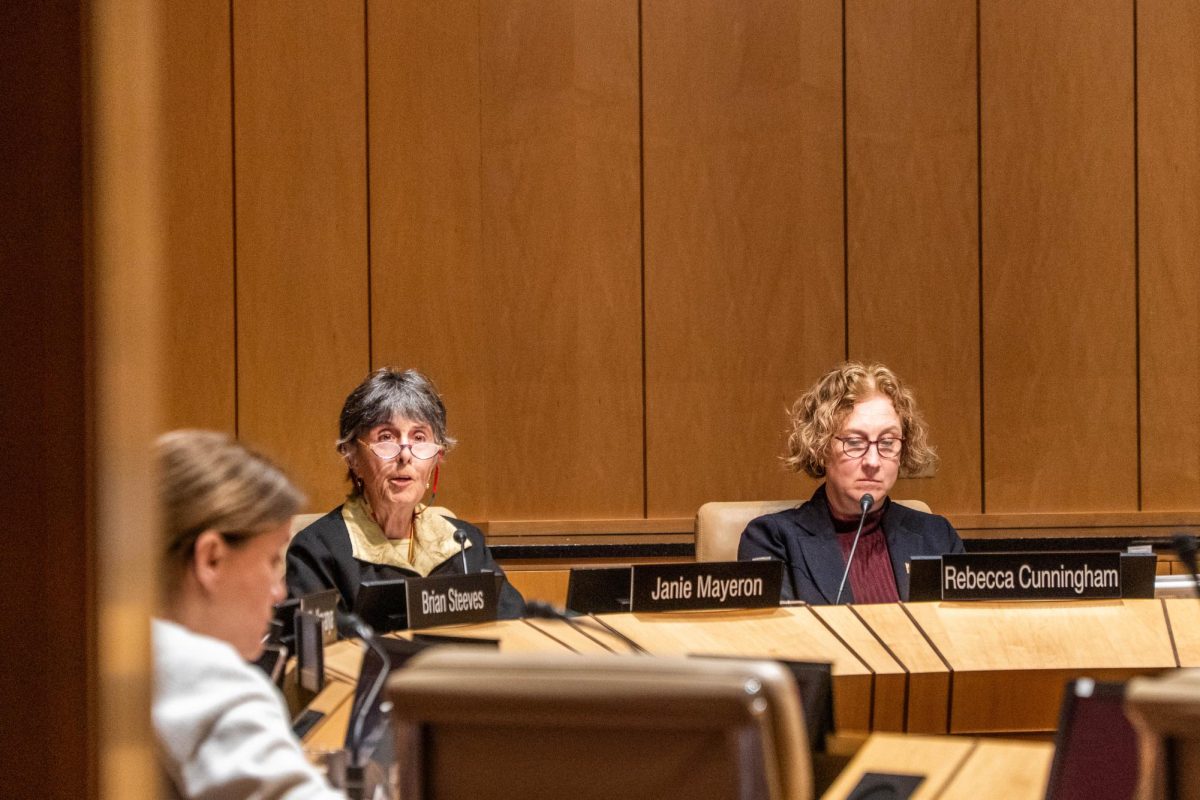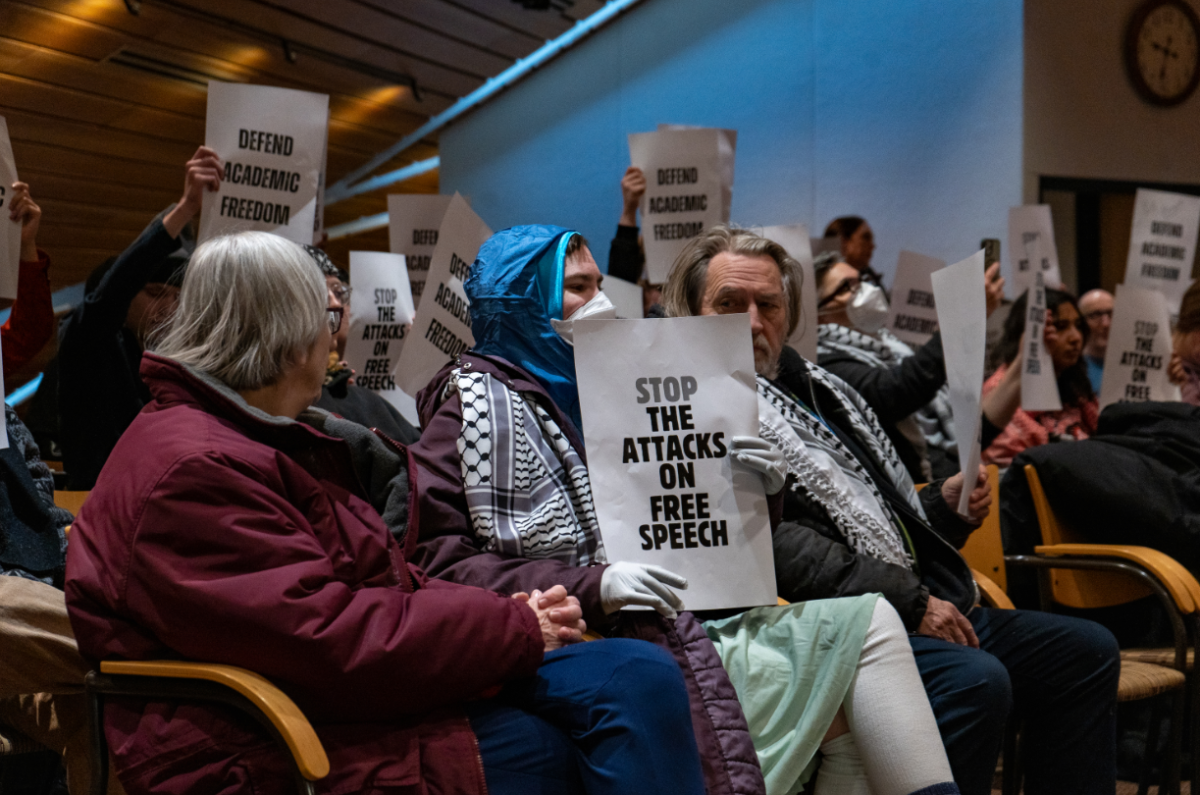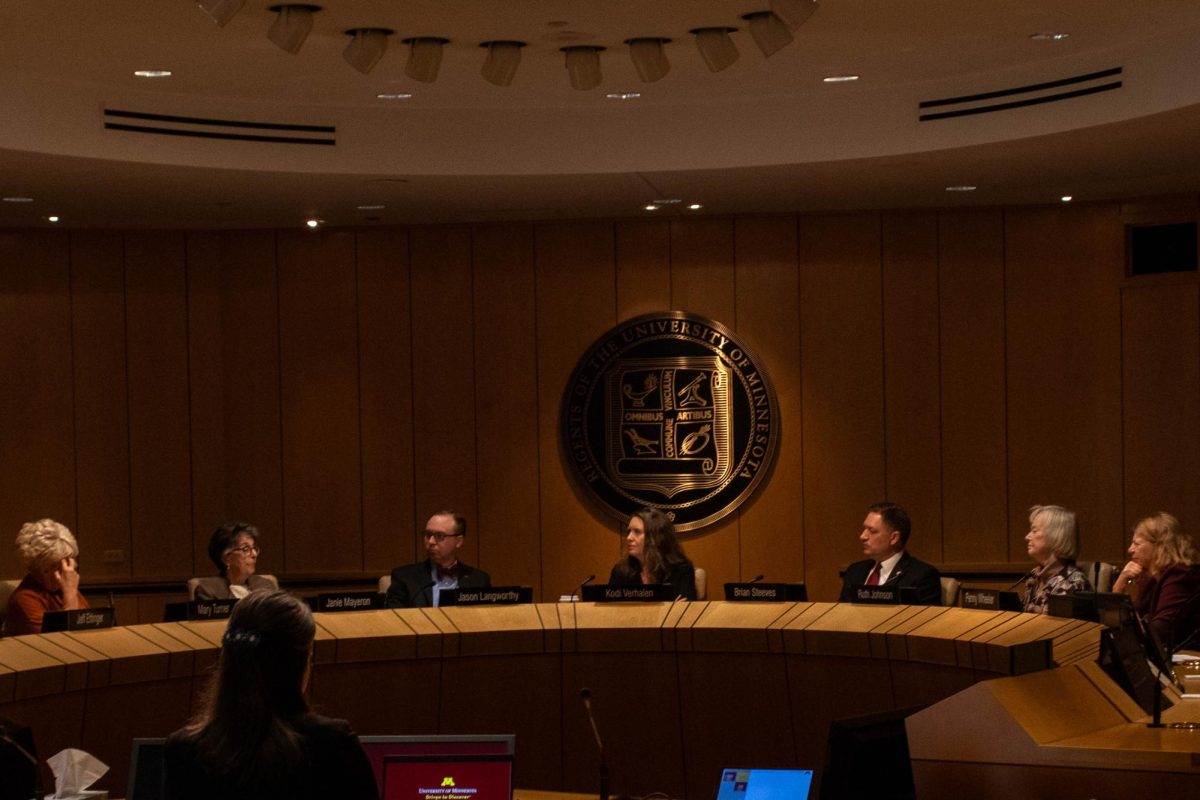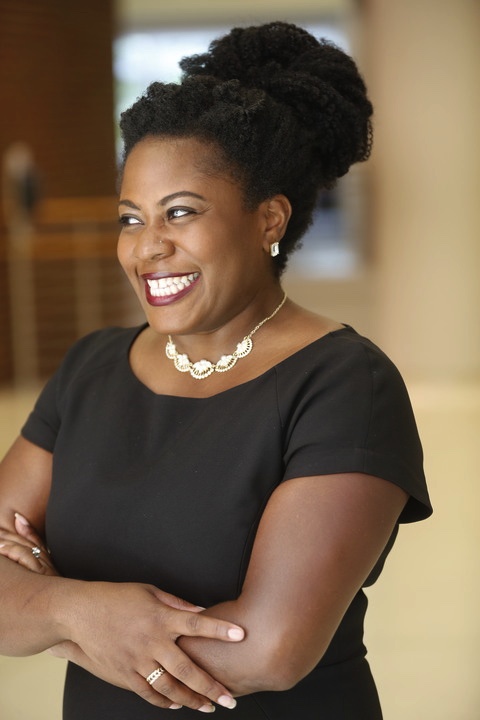The University of Minnesota Board of Regents discussed a 3.5% tuition increase for students on the Twin Cities and Rochester campuses on Thursday.
The increase is part of the recommended Annual Operating Budget proposed by Senior Vice President for Finance and Operations Myron Frans and Budget Director Julie Tonneson.
The proposal also includes a 1% tuition increase on the Duluth, Crookston and Morris campuses. All tuition increases fall below the national inflation rate of 4.9%.
“We appreciate the continued efforts of the University to keep tuition below inflation, though for our students 3.5% is still a high burden,” said student representative Sara Davis. “Tuition is increasing by 3.5%, but student services account for just 3.3% of the proposed budget for fiscal year 2024.”
Tonneson said increased financial aid will help relieve students from the tuition increase.
“All of the tuition increase on each campus will be offset by the increased aid for those eligible, from state and federal increases in the Pell and Minnesota State Grant program,” Tonneson said.
The regents also questioned raising tuition at the same rate for in-state and out-of-state students, the amount of reserves being accessed, the amount of debt students face and the 124% increase in student service fees for students on the Rochester campus while other campuses have a 6.0% or lower increase.
Tonneson added the student service fees increase for students on the Rochester campus is due to improvements in health and wellbeing, recreation, and intercultural initiatives. Regent Kodi Verhalen said the increase may be too much.
“Each of these services are so important to the student body, but they all do cost money and that’s the downside of it,” Verhalen said.
The Regents will further discuss and vote on the recommended Annual Operating Budget at a special meeting on June 26.
The Board also approved a $15.5 million practice facility for the Gophers gymnastics team.
AFSCME speaks out at Board’s public forum
The regents hosted a public forum on Thursday to receive input on the recommended Annual Operating Budget. Several staff and students represented by the American Federation of State, County and Municipal Employees (AFSCME) called for a pause on the Position for Excellence, Alignment and Knowledge (PEAK) initiative.
Cherrene Horazuk, the President of AFSCME, criticized the University’s loss of AFSCME positions over the last decade while more administrative positions have been created.
“We have been told PEAK is not aimed at a reduction in staff, but will we just see more of what has happened since 2012 — higher level jobs remain while frontline unionized positions are eliminated,” Horazuk said.
Horazuk gave a petition to the Board with over 600 signatures calling for a pause on PEAK and demanding that no frontline jobs be lost.
“The PEAK Initiative is not about reducing staff and it never has been,” Frans said. “PEAK ensures a more efficient, compliant and equitable service delivery at the University, both for employees receiving and delivering those services.”
At the Regents monthly meeting in May, students and staff represented by AFSCME protested PEAK, the appointment of Jeffrey Ettinger as interim president and called for the University to fund the College of Liberal Arts’ ethnic and gender studies programs. Those concerns were all raised again during Thursday’s public forum.
Enrollment update
The regents also received an update on the University’s decline in enrollment from Dean of Undergraduate Education Robert McMaster.
According to McMaster, the University of Minnesota – Twin Cities campus has seen a 2.6% decline in undergraduate enrollment since the COVID-19 pandemic, while the remaining University campuses have seen a 13.9% decline.
McMaster said an important reason for this is the increase in Minnesota high school students who are not attending college upon graduation.
“The percentage of Minnesota high school graduates who do not attend any college at all has now risen to close to 40%,” McMaster said. “That’s really an alarming number given the long term commitment to higher education in this state.”
McMaster said the pandemic and high school graduates having more opportunities to have a high-paying job right after high school have caused this trend to grow.
McMaster added there is potential for a “significant enrollment cliff” as the number of projected high school graduates in Minnesota is expected to hit a peak in the 2024-25 school year before hitting a decline that could last until the 2036-37 academic year.
Public record request response times increased
The regents received an update on the University’s Data Practices Compliance on Friday from Deputy General Counsel Brian Slovut and Chief Data Practices Compliance Officer Laurie Beyer-Kropuenske.
According to Slovut and Beyer-Kropuenske, the number of public data requests has increased from over the last decade — from 283 requests in 2012 to a record 1,280 requests in 2022, an approximately 350% increase.
Despite the significant increase in requests, the University’s response time has significantly decreased. The University’s average response time for each data request was 85 days in 2017, but the average response time has dropped since then and is now 10 days, according to Slovut.
“Recent investments in staff and policy have shaped the University’s approach to accessing public records, delivering markedly improved response times despite rapid increases in the volume of public records requests received each year,” a University statement said.
Gabel’s final meeting and election of officers
The meeting on Friday was former-president Joan Gabel’s final day serving the University. The Regents presented her with a certificate of recognition for her work.
“The Regents of the University of Minnesota express deep appreciation to President Gabel and confer upon her the title of ‘President Emeritus’ effective June 10, 2023,” said Board Chair Janie Mayeron.
Gabel got emotional as she thanked the University community in her final report as president.
“I’m incredibly humbled and honored to receive this designation,” Gabel said. “I’m very grateful for everything we were able to accomplish together.”
Ettinger began serving as interim president on June 10.
Additionally, the Board of Regents unanimously elected board officers for the 2023-2025 term.
Mayeron will serve as the board chair, Regents Douglas Huebsch and Mike Kenyanya will serve as Co-Vice Chairs, executive director and Corporate Secretary Brian Steeves will serve as secretary and Frans will serve as treasurer.


